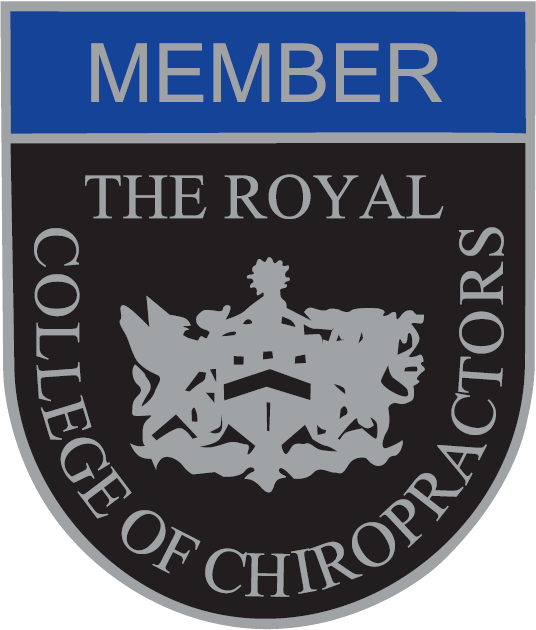 With 8 out of 10 people suffering from back pain at some time or other, it is hardly surprising that this problem is one of the most common causes for a visit to Winchester Chiropractor, Max Atkinson’s Bradford House practice. He says that many patients also visit for regular ‘maintenance visits’ as they have found that Chiropractic Care combined with practical advice on lifting, posture, diet, exercise and workplace ergonomics are invaluable for preventing back pain recurrences.
With 8 out of 10 people suffering from back pain at some time or other, it is hardly surprising that this problem is one of the most common causes for a visit to Winchester Chiropractor, Max Atkinson’s Bradford House practice. He says that many patients also visit for regular ‘maintenance visits’ as they have found that Chiropractic Care combined with practical advice on lifting, posture, diet, exercise and workplace ergonomics are invaluable for preventing back pain recurrences.
Many people who have suffered a debilitating bout of back pain are understandably nervous about the possibility of it happening again. For those whose jobs involve sitting at a workstation for long periods or using repetitive movements, not knowing how to mitigate back pain problems when a change of job is impossible can be a big worry – especially with fears of the problem getting worse over time.
With such a high risk of back pain recurring, a visit to your Winchester Chiropractor is important in order to receive help for an existing problem and advice on preventing back pain. By educating yourself, learning the triggers of back pain for you – and strategies that can decrease the likelihood of it happing again, you will be able to return to the activities you enjoy and avoid a recurrence of back pain in your working environment. For more information, call the practice now on 01962 861188 to arrange an appointment.
Here are 7 of the top tips we recommend to our patients for preventing back pain from recurring
1. The number one, most important thing is to listen to your body! If you are doing something that is hurting your back, you are causing more damage by trying to continue. Stop immediately if something hurts.
2. We all know the importance of a warm up and a cool down period when exercising, but how many of us think about the importance of this when tackling a gardening or DIY job? Warming up your muscles before a spell of digging or flat pack furniture assembly is just as important as before a workout. Similarly, some cool down stretches when you finish, are just as important as after an exercise class.
3. Take regular exercise. Pilates, Yoga and classes designed to increase flexibility and mobility are great for strengthening your back and those all-important abdominal muscles as well. But, make sure your class tutor is aware of any pre-existing back problems you may have as there are variations on some exercises that can be safer for those with Osteoporosis or Arthritis, (for example).
4. Sleeping in a comfortable position is vital for everyone. Use a pillow that supports your neck correctly and a mattress that supports your body weight; both are important for keeping the spine aligned as you sleep. Try to lie on your side; you may find that a small pillow placed between the knees or lower thighs will take pressure off the hips and relieve existing back pain. Laying on your tummy is the position that puts most stress on the spine.
5. Learn how to lift correctly. If your job involves any lifting at all, you should receive correct Health and Safety instruction on doing this safely. Your Chiropractor can also provide advice and information to help you – particularly if you have had a back injury. Remember that holding a weight as close to your body as possible and lifting with knees bent and a straight back, without twisting, is the safest way.
6. Avoid long periods of prolonged sitting. Even if you have to set a timer on your computer to remind you to get up every twenty minutes or so, do it! Prolonged sitting causes weakened muscles and loading of the discs in our backs. Take advantage of the advert breaks in TV programs to get up and make a cuppa or stretch! Make sure your workplace seating is at the correct height and supports your back and that furniture at home is comfortable, allowing you to sit with a supported back and your feet on the floor.
7. Use any pain relief medications wisely. It is important to note, that while anti-inflammatory medications such as Ibuprofen and over the counter painkillers such as Paracetamol can be helpful in the short term, do not use them to dull the pain so that you can keep on working. Remember that they may mask symptoms but do not address the root cause of your pain.
Finally, if in doubt, consult your Chiropractor! Long-term back pain problems can range from the mildly niggling to completely disabling. Recurring problems can make you nervous about participating in your favourite activities or make work a misery. Chiropractors can often help with relief of pain and a marked improvement in your quality of life as well as helping you with preventing back pain from recurring in the future.









